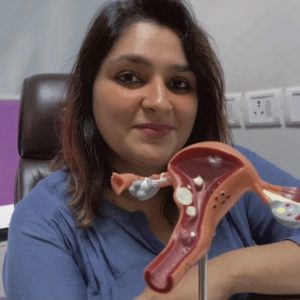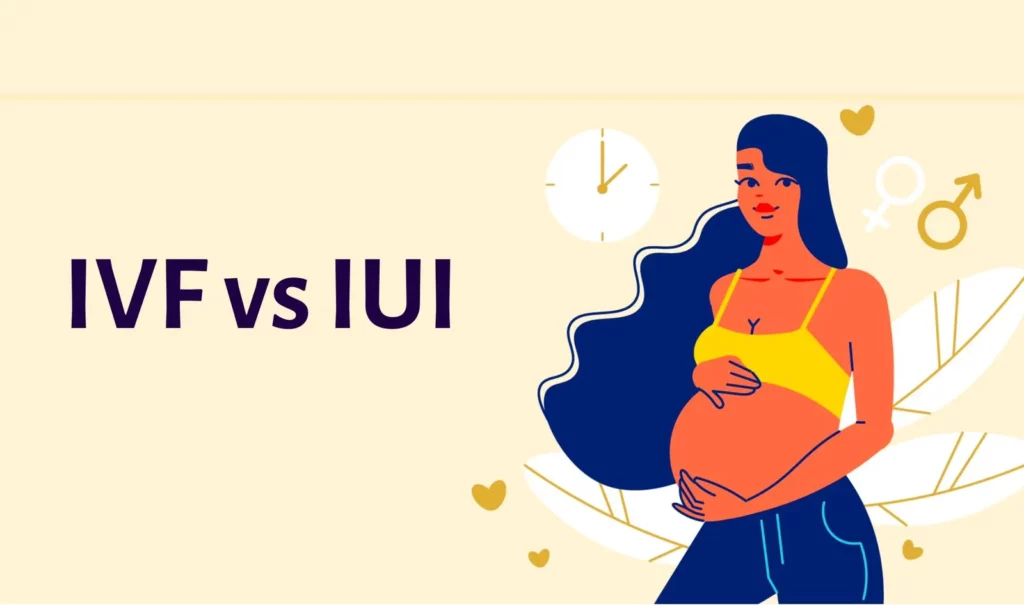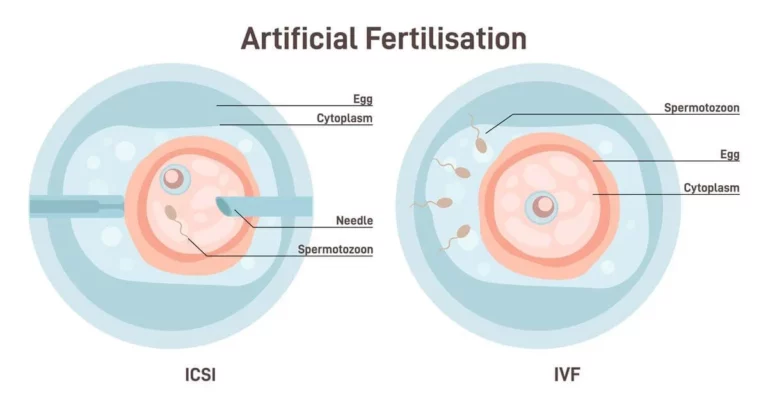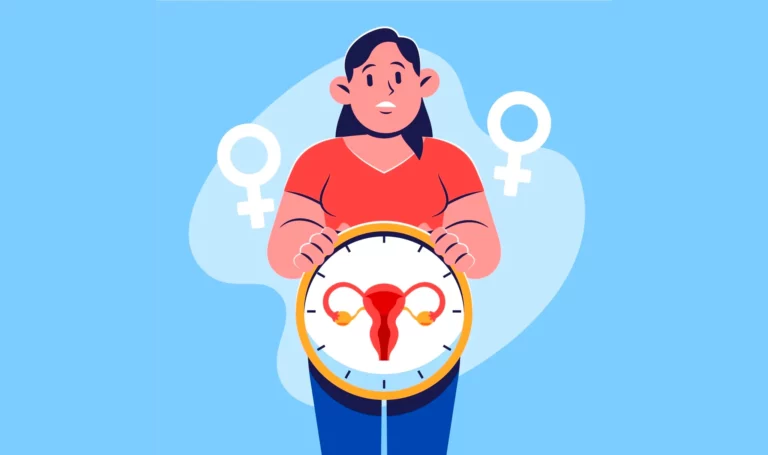Infertility treatments have become extremely modernized & technologically advanced. Combined with the expertise of the best doctors, state-of-the-art facilities, and expertise of embryologists the success rates of infertility treatments have seen enormous growth.
Thousands of people have embarked on their journey to parenthood with the help of infertility treatments or Assisted Reproductive Technology. Two of the most commonly known fertility treatments are In Vitro Fertilization and Intra Uterine Insemination. While both of these treatments help couples conceive, their procedures are quite different.
Having the correct understanding of both of these treatments and knowing the comparison of IVF vs IUI would help you know the rationale behind the fertility expert’s recommendation, and can help you ask relevant questions to your doctor.
Let’s understand them both.
IVF vs IUI – The Basics
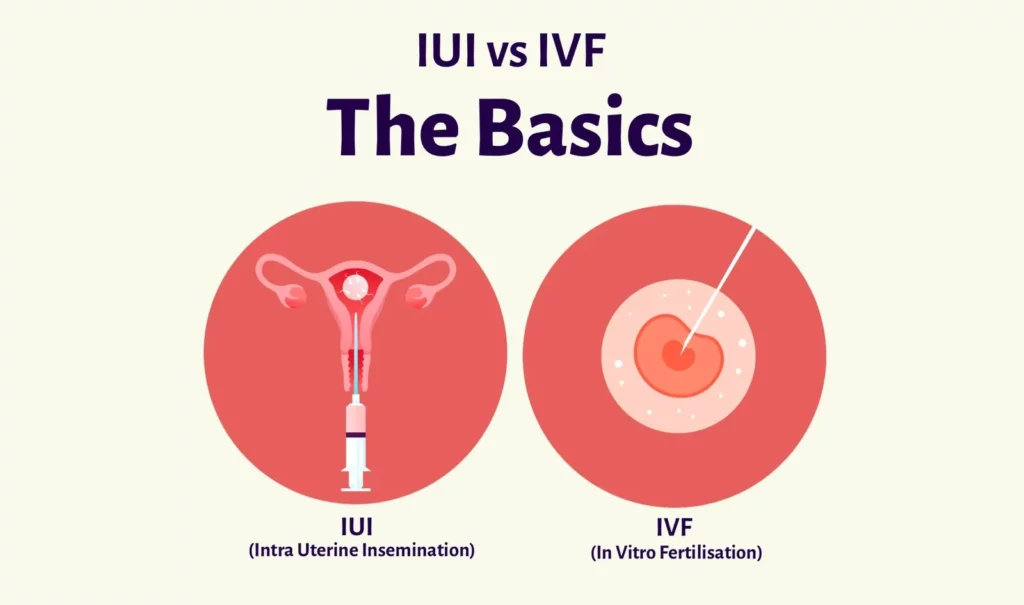
IUI or Intrauterine Insemination & IVF or In Vitro Fertilization are types of infertility treatments that help people conceive.
To understand IVF vs IUI, we need to know the basics of how a baby is conceived. Each month the ovaries release an egg, which travels to the fallopian tubes (thin tubes connecting the ovaries to the uterus). If viable sperm is there in the female reproductive tract, it meets the egg & fertilizes it. The fertilized egg develops into an embryo & embeds into the uterine wall for a successful conception. If viable sperm is not there in the female reproductive tract, the lining of the uterus sheds resulting in periods and the reabsorption of the egg. This makes having intercourse during ovulation important to increase the chances of sperm meeting the egg in the fallopian tubes.
In IUI treatment, the doctor inserts the sperm sample directly into the woman’s reproductive tract during ovulation to maximize the chances of the egg meeting the sperm, resulting in successful fertilization.
In IVF treatment, the approach is a multi-step and invasive procedure, with a better success rate for some couples. It involves fertilizing the egg & the sperm in a lab and then placing the fertilized egg which develops into an “embryo” into the uterus.
What is IUI
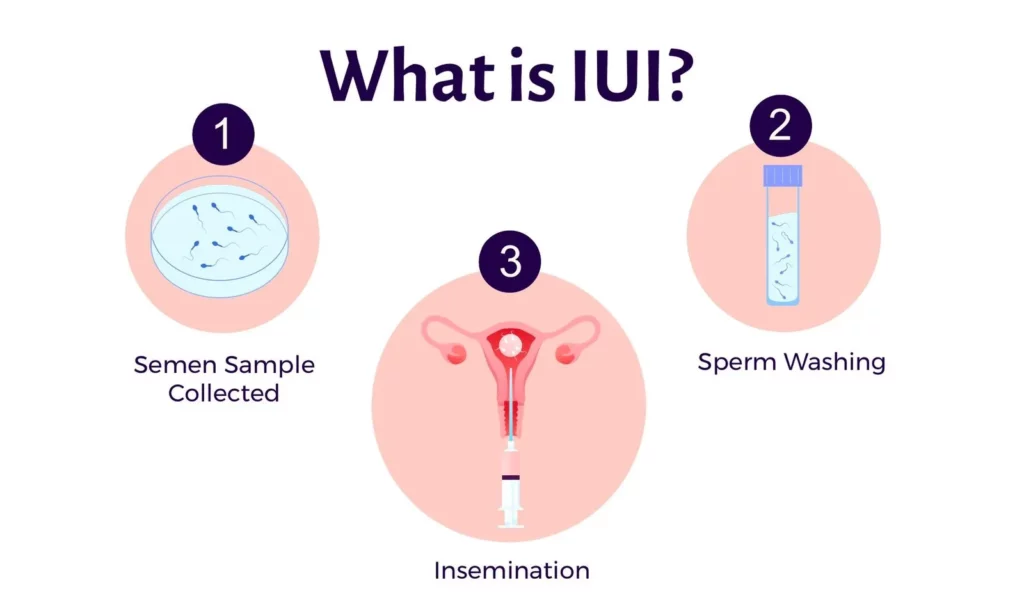
Intrauterine Insemination or IUI involves taking the sperm sample, “washing it” in a lab, and placing it into the uterine cavity. Washing sperm prepares it for IUI by removing the seminal fluid in the sample and concentrating the good-quality sperm. This increases the chances of high-quality sperm reaching the egg & fertilizing it.
The doctor places the sperm into the uterine cavity, so the sperm can bypass the cervix in the female reproductive tract and need to travel a shorter distance to reach the egg in the fallopian tubes. This is done after monitoring when the woman would ovulate, to increase the chances of conception.
After intercourse, the sperms need to travel through the vaginal canal, cervix, and uterine cavity into the fallopian tubes. IUI makes it easier for the sperm to reach the egg as now the sperm only needs to travel from the uterine cavity towards the egg.
This procedure is preferred in people with unexplained infertility, minor abnormalities in the sperm, ejaculation issues, and when the fallopian tubes of the female are not blocked. The procedure takes a few minutes, and some patients may experience mild cramping after it.
IUI can benefit people who have the following conditions –
- Unexplained infertility
- Low sperm count
- Low sperm motility
- Issues with ejaculation or erection in the male partner
- Cervical or cervical mucous problems in female partner
The doctor decides if IUI treatment can be done with or without medications.
What is IVF
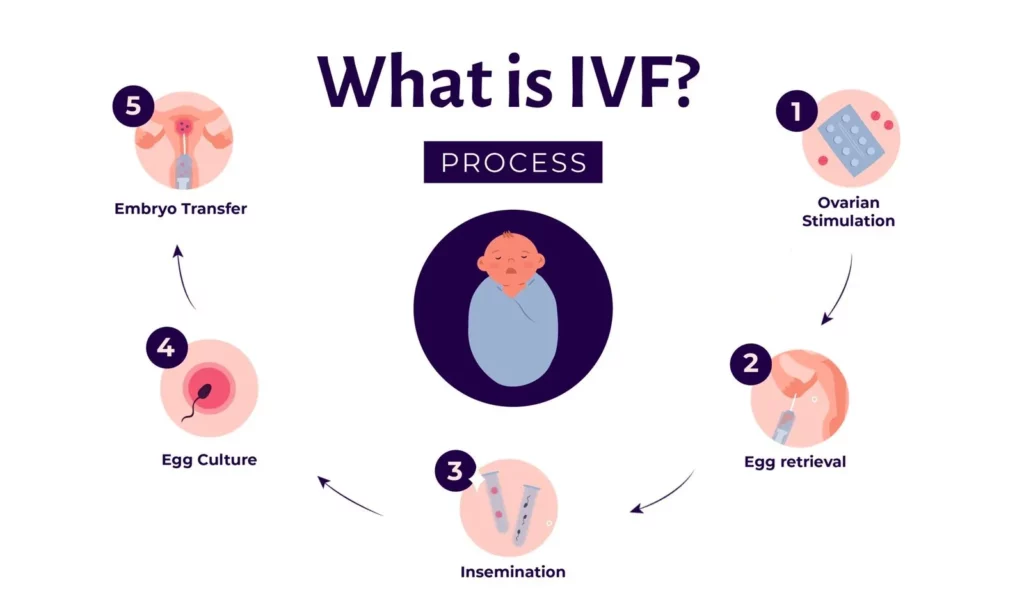
In Vitro Fertilization is a type of assisted reproductive technology which involves multiple steps and has a higher success rate than IUI for some couples.
It involves the following steps –
- Ovarian Stimulation – A woman’s ovaries produce 1 mature egg each month, which is released into the fallopian tubes.
IVF requires multiple eggs to maximize the success of the infertility treatment, hence medications & injections are given to the patient to increase their quantity of eggs.
The egg development and maturation are monitored by the IVF specialist. Once the doctor sees that your hormones and follicles are ready, a trigger shot is given to help mature the eggs and start ovulation.
The eggs are retrieved when they’re ready. This step involves blood tests & ultrasounds to help your doctor make the best decision about when your eggs are mature for the treatment.
- Egg Retrieval – Scientifically known as “follicular aspiration”, this step allows the doctor to retrieve the eggs from the ovary. The patient is under anaesthesia so that they don’t feel pain or discomfort during egg retrieval. The eggs are suctioned from the ovarian follicles using a needle through the vagina with an ultrasound wand. The patient is observed for some time after the procedure, after which they can go home and continue their routine the next day onwards.
- Insemination – The embryologist washes the sperm sample to prepare it for IVF treatment. The most motile & healthy sperm are concentrated to optimize fertilization and improve the chances of a successful IVF treatment. The sperms are then prepared & added to a petri dish with the eggs to facilitate fertilization. To further increase the success rate of IVF, the doctor may recommend ICSI or Intra Cytoplasmic Sperm Injection where the sperm is directly injected into the egg.
- Embryo Culture – The fertilized eggs divide & develop to form “embryos”. These embryos are monitored by experts and are genetically tested so that embryos that have the maximum chances of conception can be selected for the IVF procedure. Extra embryos can be frozen for future IVF cycles, which would reduce the costs of additional cycles and make it less invasive.
- Embryo Transfer – The developing embryos are injected into the uterine cavity using a thin catheter that goes through the vaginal canal and cervix into the uterus. These embryos can implant in the uterine cavity. A pregnancy test is done a few days after the embryo transfer to confirm if the embryos have implanted in the uterine wall, and the pregnancy is confirmed.
IVF Treatment can benefit people who have the following conditions –
- Damaged or blocked fallopian tubes
- Endometriosis
- Uterine fibroids
- Ovulation disorders
- Tubal ligation
- Low sperm concentration
- Sperm abnormalities
- Poor sperm motility
- Unexplained infertility
IVF is done with the expertise of several healthcare professionals including your fertility doctor, embryologist, nurses, and technicians. To maximize the success of IVF treatment, some people may require additional procedures like Intra Cytoplasmic Sperm Injection (ICSI), Laser Assisted Hatching, Microsurgical Epididymal Sperm Aspiration (MESA), Testicular Sperm Extraction (TESE), and Embryo Biopsy.
IUI vs IVF
The main difference between IUI vs IVF is that while the eggs are fertilized in the female reproductive tract in IUI, IVF fertilizes them in a lab. In both treatments, the expertise of the doctor matters a lot, making choosing the right infertility specialist an important decision.
- While IUI can be less expensive per cycle, to get pregnant multiple cycles of IUI may be required. Often patients try IUI before IVF, resulting in higher costs for infertility treatment eventually.
- IUI is non-invasive, whereas IVF is invasive and requires anaesthesia.
- IUI success rates per cycle are lower than the IVF success rate per cycle. Hence IVF vs IUI success rates needs to be considered after understanding the patient’s age, and the quality of the egg and sperm. The fertility expert decides whether multiple cycles of IUI would work better, or whether starting IVF treatment without spending time trying to conceive using IUI would be preferred.
- The chance of twins IUI vs IVF is more in IUI as if medications are provided, the chances of multiple eggs getting fertilized is higher.
With IVF, the number of embryos implanted would determine the likelihood of twins.
- IUI doesn’t need as many visits to the fertility doctor as IVF does, since it does not involve multiple steps.
The decision of IUI vs IVF is made by your doctor based on numerous things such as your age, the quality of egg & sperm, additional complications, and other variables.
This makes trusting your doctor’s decision crucial. The doctor would weigh the IUI vs IVF pros and cons. For example, if a fertility doctor needs to recommend IUI vs IVF over 40 the doctor may suggest IVF as that has a higher success rate per cycle and the patient’s age may be an issue for conceiving if IUI is tried before IVF.
When to do IUI first or when to start IVF depends completely on case to case, as no two infertility treatments are the same. You need to discuss your concerns with your doctor transparently, and understand what treatment would work best for you.
IVF vs IUI Cost
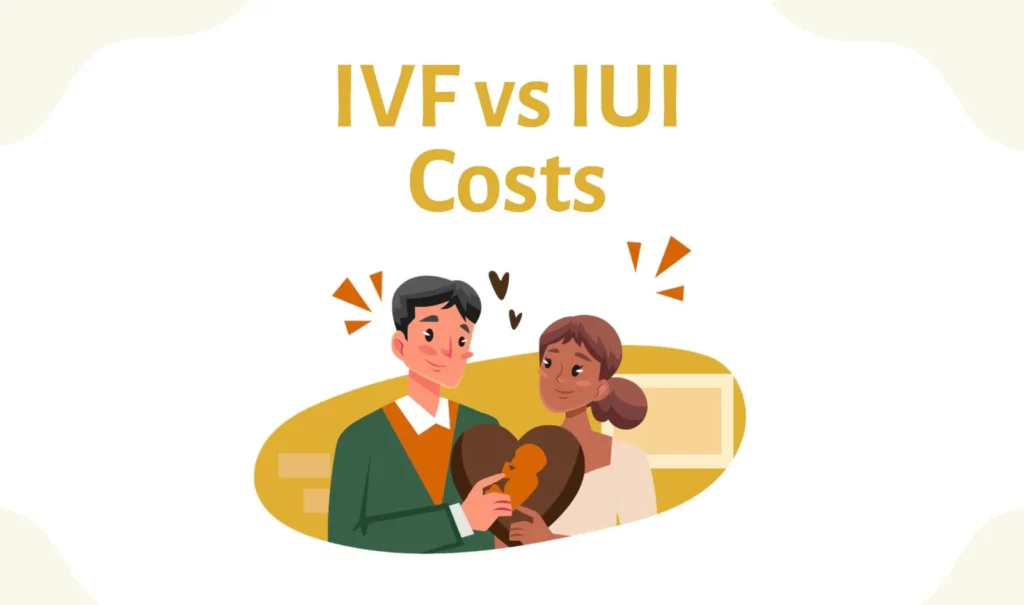
IVF vs IUI cost is a big determining factor for the infertility treatment choice,
The cost of IUI per cycle is lower than IVF, however, the success rate of IVF per cycle is more.
Multiple cycles of IUI may be required bringing up the costs. Hence, in some patients, IVF treatment makes more sense than going for IUI cycles before starting IVF treatment.
IVF treatment costs also depend upon the medications & injections and hence may increase during infertility treatment.
Grace Fertility Clinic provides IUI treatment and IVF treatment at affordable prices when compared to the prices nationally. While an IVF treatment can cost INR 1,10,000 to INR 4,00,000 per cycle in India, Grace Fertility provides IUI treatment at INR 12,000 for 3 attempts and IVF treatment starts at INR 90,000 and can go up to INR 1,50,000. This cost can change from patient to patient as a one size fits all approach doesn’t work in fertility treatments.
IVF vs IUI – Which One is Right For You?
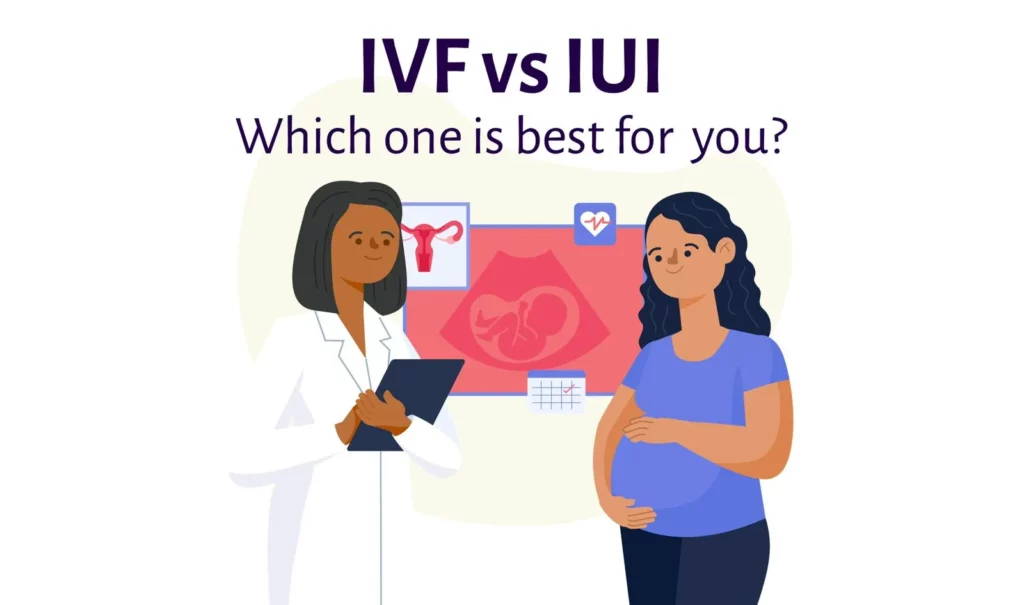
The answer to this question depends upon various variables, and hence you must discuss it with your doctor. This makes choosing experienced & empathetic fertility specialists important, as you can discuss your concerns & expectations with them freely.
Best Infertility Treatment in Gurgaon
Grace Fertility in Gurgaon is the best infertility clinic not just because of its high success rates, but also due to its empathetic staff & great patient experience.
Dr. Reubina Singh and her team have brought a difference to the lives of thousands of people by helping them expand their families and discover the joy of parenthood. The clinics have ethics, kindness & transparency at the core so that every patient can feel safe & cared for. Dr. Reubina is a senior infertility specialist who wants to make healthcare accessible & empowering, and Grace clinics have been following that ideology for helping their patients.
The clinics offer individualized plans & care to ensure that each treatment is customized to maximize success. The personalized care combined with expertise, experience, and empathy of doctors makes it Gurgaon’s best infertility clinic.
To know more, get in touch with the experts at Grace Fertility here. Start your journey to parenthood with a free first consultation with the experts at Grace Clinics.

